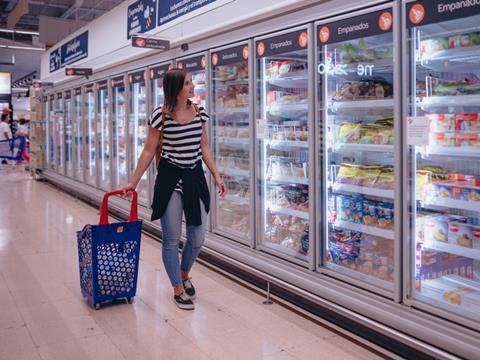
Borealis has unveiled its new Borstar Nextension Polyethylene (PE) platform, said to deliver superior toughness, sealing performance and enhanced processability for packaging solutions that enable downgauging, improve cost efficiency and support design for recycling.
The company states the new technology enables mono-material solutions that can replace existing multi-material products, making them easier to sort and recycle at end of life. It adds that this helps to support the recycling and waste reduction targets set out in the EU’s Packaging and Packaging Waste Regulation (PPWR).
Borealis introduces its Borstar Nextension PE technology with two high-performance development materials. The first solution is said to deliver ‘double the toughness’ of first-generation metallocene PE materials while maintaining stiffness and excellent processability, including superior bubble stability and throughput. It is also said to enable fully recyclable packaging and be ideally suited for form, fill and seal (FFS) and frozen food packaging.
The second solution features a sealing profile that reportedly reduces sealing initiation temperature by over 15% compared to first generation metallocene PE. Combined with the material’s mechanical properties, the solution is said to enable faster packaging speeds and ‘best-in-class’ hot tack performance, suited for lamination, FFS, and food packaging.
The company recently announced that its new compounding line for recyclate-based polyolefins is now fully operational, allowing customers to co-develop and test the use of recycled plastics in their operations. The line is designed to process a range of recyclate flakes and meet the standards required in the consumer products, appliances, mobility, and energy sectors.
In related news, NOVA Chemicals launched its polyethylene (PE) resins that incorporate non-fluorinated polymer processing aids (NF-PPA), said to deliver comparable performance to legacy fluoropolymer PPA technology and help manufacturers meet global regulatory compliance standards with minimal production disruption. The PPA is also compatible with existing resin formulations, enabling the production of high-quality film structures free from fluoropolymers.
If you liked this story, you might also enjoy:
The ultimate guide to the Packaging and Packaging Waste Regulation in 2025
How are the top brands progressing on packaging sustainability?
Everything you need to know about global packaging sustainability regulation in 2025
The key to increasing the use of reusable packaging in supermarkets














No comments yet